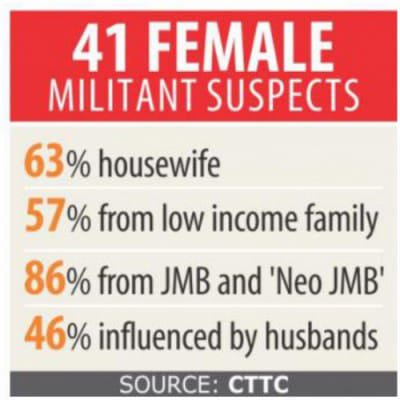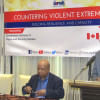Women and violent extremism

Studies of some 30 countries in the Middle East, Africa, South and East Asia show that an overwhelming majority of women in these countries are victims of violent extremism and terrorism. Interestingly, studies also show that women, apart from being victims, can be, and also are, the perpetrators as well as mitigators of the effect of violent extremism. And this important issue was the focus of a national seminar organised by the Bangladesh Institute of Peace and Security Studies on November 19.
The role of women in countering what is becoming a pervasive phenomenon in some countries cannot be overemphasised. Bangladesh is not immune to its serious consequences, as our experience in recent times shows. Forty-one profiles of female militant suspects arrested in the last few years were analysed, and more than 66 percent were found to have been influenced to get involved in militancy by their family members, according to the counterterrorism unit. The rest were self-motivated or externally influenced. Despite the gravity of the issue, it seems that the policymakers have not yet accorded it the importance that it merits.
Given the significance of the problem, it will do well for the planners to factor in the role of women in the overall strategy to fight the menace of militancy. It is important to understand that women could be the first line of action in preventing the germination of extremism, in which case countering it will become that much easier. However, this would require a vigorous awareness campaign all over the country using all the platforms available. In this regard, the media's role as a force multiplier in countering violent extremism should not be overlooked.

 For all latest news, follow The Daily Star's Google News channel.
For all latest news, follow The Daily Star's Google News channel. 





Comments